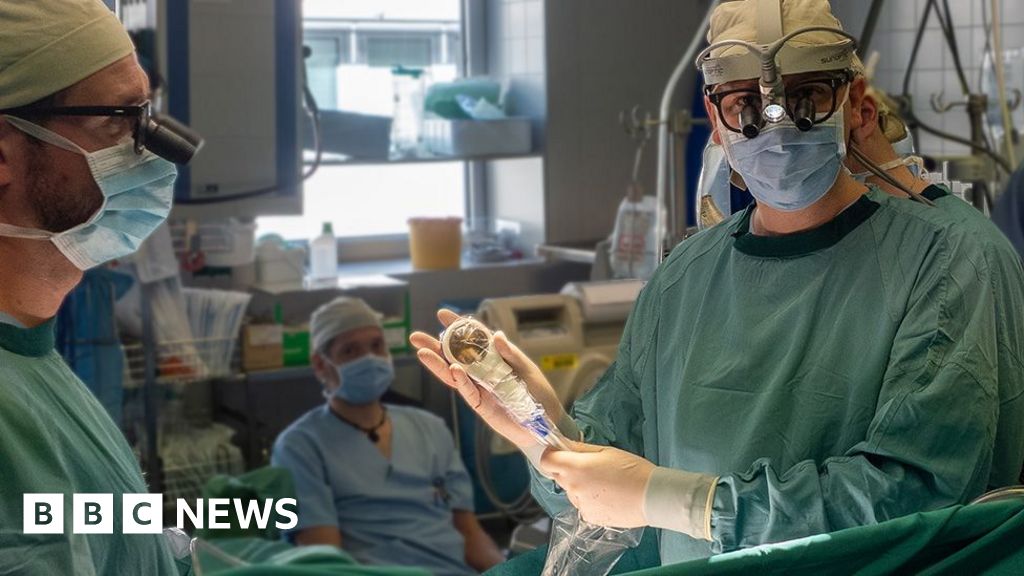Gentle shock waves may be able to regenerate heart tissue in patients after bypass surgery, according to a study.
An Austrian study of 63 people found that those who received the new treatment were able to walk farther and get more blood pumping from their hearts.
“This is the first time that heart muscle regeneration has been seen in a clinical setting, which has the potential to help millions of people,” said Professor Johannes Holfeld of the Medical University of Innsbruck.
Larger trials of the device, which the researchers have dubbed a “space hairdryer,” are currently being planned to replicate the results in a wider group of patients.
Blocked arteries
The disease, which is a leading cause of death worldwide, has no cure.
Medication and other treatments can help manage the disease and reduce the chance of a heart attack, in which the blood supply to an organ is suddenly cut off.
In severe cases, surgeons may take healthy blood vessels from the chest, legs, or arms and connect them to the areas of the heart above and below the blocked artery, a procedure called a cardiac bypass.
However, this type of surgery cannot improve heart function; it can only maintain it.
Austrian researchers are trying to encourage damaged tissue to regenerate itself by applying low-intensity sound waves immediately after bypass surgery.
The procedure takes about 10 minutes and is designed to encourage the growth of new blood vessels around areas damaged or injured after a heart attack.
Similar “shock wave” technology is already used to treat other conditions such as tendon and ligament injuries and erectile dysfunction.
More powerful waves or pulses are also used in lithotripsy, a common medical procedure to break up kidney stones.
According to a study published in the European Heart Journal, half of the patients undergoing bypass surgery received the ultrasound treatment under general anesthesia, while the rest underwent a sham, or mock, operation.
One year after surgery, the amount of oxygenated blood pumped by the heart increased by:
- Shock wave group: 11.3%
- 6.3% in the control group
Patients who received shockwave therapy were able to walk farther without having to stop and reported an improved quality of life.
“This means they will be able to take their dog for a walk again or go to the supermarket as part of their everyday routine,” Professor Holfeld said.
“We also expect to see increased life expectancy and reduced hospital readmissions.”
Dr Sonia Babu Narayan, deputy medical director and cardiologist at the British Heart Foundation, said there was “enormous room for improvement” in current heart care.
“The exciting thing about this trial is that people who received shockwave therapy to their hearts during surgery had better heart function and fewer symptoms a year later than people who didn’t,” she said.
“Larger and longer-term trials are needed to study the long-term effects.”
The researchers expect European regulators to approve the device later this year, with the first use in patients outside of clinical trials expected in 2025.
The study was funded by Austrian government ministries, the US National Heart, Lung and Blood Institute, and a company spun off from the Medical University of Innsbruck and partly owned by the researchers.

